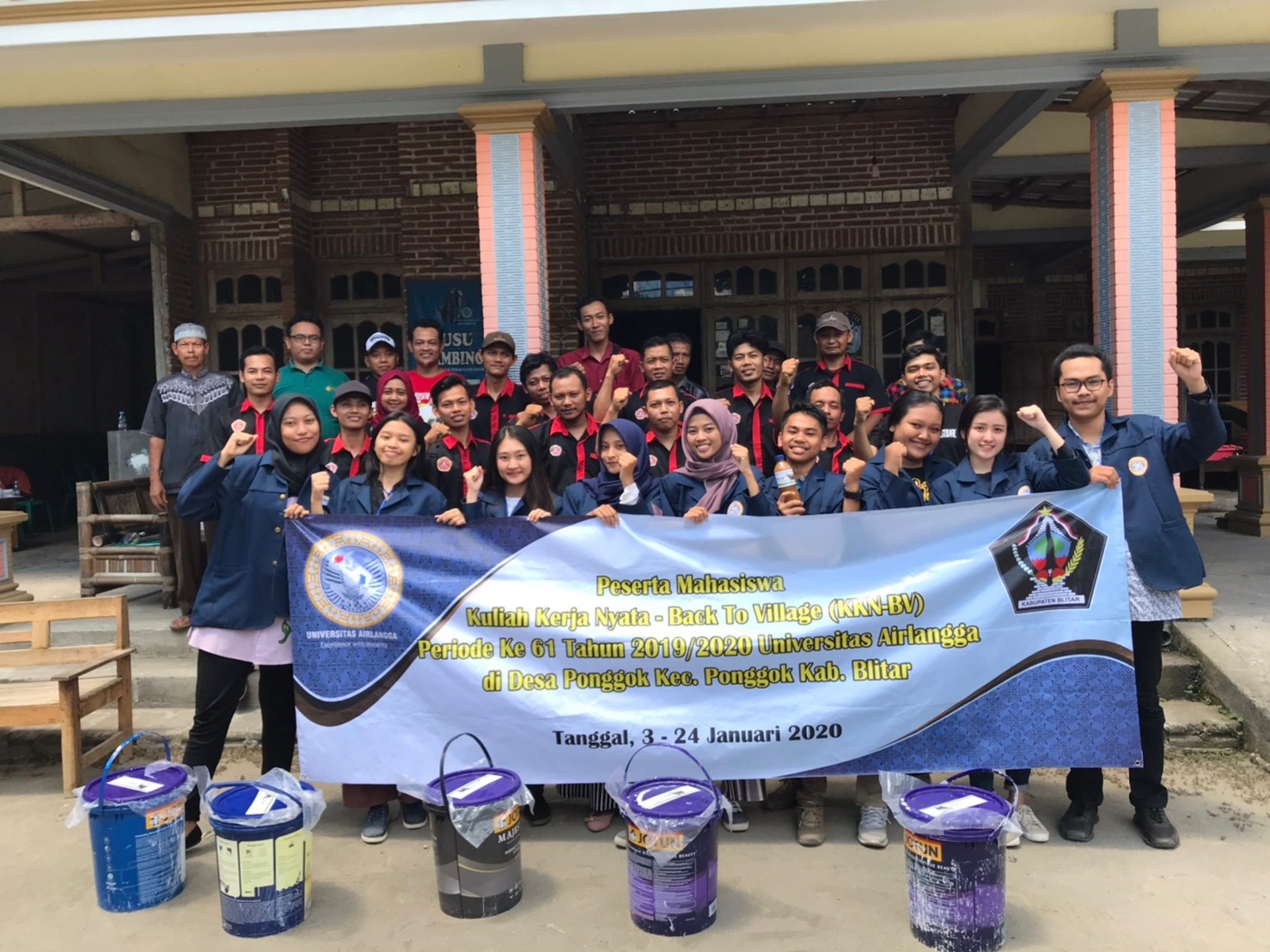UNAIR NEWS – Animal husbandry is a sector that needs special attention. Animal husbandry plays an important role in efforts to improve community welfare. In this regard, Ponggok-Blitar KKN BV Team led by Omega (FEB) and 9 other members, Dilan, Ester, Raisya (FISIP), Vindy (FIB), Kharis (FKH), Fary, Nadya, Mega, Fanie (FEB) collaborated with breeders in Ponggok Village to conduct dissemination activities and workshops on making probiotics. This activity is expected to improve livestock productivity and make the whole process more efficient.
Probiotics are feed additives that utilize microorganisms in the form of bacteria, fungi, and protozoa that play a role in supporting digestive system in livestock. Provision of probiotics in livestock aims to increase good bacteria in the stomach of livestock while suppressing the growth of pathogenic bacteria causing diseases. That way the absorption of nutrients will be more optimal and livestock become healthier. Furthermore, the use of probiotics will also reduce the unpleasant odor produced from livestock manure.
Held in one of Ponggok Village youth group member’s house last week, the activity was attended and opened by the Head of Ponggok Village, Supono. He really appreciated the program and according to him, the innovation was very good to be implemented in Ponggok Village. He also hoped that the program can contribute to improving the economy of villagers.
The event was started with a presentation on material about animal ration and nutrition with talk show concept and two-way discussions. Then, it was continued with the workshop on making probiotics guided by UNAIR Community Service Program, Back to Village Team. The process used barrel and natural materials available around the house and without any chemicals. So the probiotics are very safe for livestock.
The process of making probiotics is started by finding the materials needed such as starter microorganisms, cane drops, yeast, spices and nutritious leaves commonly found around the house. After the material is collected, they were then mixed into one barrel filled with water while stirring until it is well mixed. The mixture that has been made is then stored for 2 weeks in airtight condition.
The process of making a successful probiotic solution is characterized by the smell of a sweet-smelling solution like tape, if it has a foul odor it must be discarded and should not be given to cattle. Kharis as the PIC said that the actual technology for making probiotics was already well known in the livestock world.
“However, due to limited information farmers tend to hesitate to implement these innovations. Most of them are afraid of negative effects of using probiotics, even though they are made with natural ingredients that are safe for livestock,” he explained.
The activity was attended by at least 20 enthusiastic participants as they were very active in asking to the speakers. The workshop for making probiotics was closed by presenting the probiotic products to Anwar as the Head of Youth Organization and a group photo of all participants and event organizers.
Author: Mohamad Kharis Suhud (Student of the Faculty of Veterinary Medicine)





